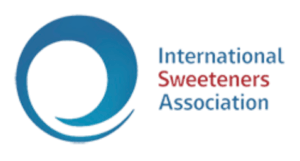Estimation of exposures to non-nutritive sweeteners from consumption of tabletop sweetener products: a review
Abstract Reliable estimation of intake of non-nutritive sweeteners (NNS) from tabletop sweetener products (TTS) is complex. Some TTS contain more than one type of NNS and more importantly, there can be considerable formula variation between different types of TTS products; that is liquid, powder and tablet products. A survey of use levels (mg NNS/kg TTS […]
Assessing the in vivo data on low/no-calorie sweeteners and the gut microbiota
Abstract Low/no-calorie sweeteners (LNCS) are continually under the spotlight in terms of their safety and benefits; in 2014 a study was published linking LNCS to an enhanced risk of glucose intolerance through modulation of the gut microbiota. In response, an in-depth review of the literature was undertaken to evaluate the major contributors to potential changes […]
Associations of artificially sweetened beverage intake with disease recurrence and mortality in stage III colon cancer: Results from CALGB 89803 (Alliance)
Abstract Purpose: Observational studies have demonstrated increased colon cancer recurrence and mortality in states of excess energy balance, as denoted by factors including sedentary lifestyle, diabetes, increased dietary glycemic load, and increased intake of sugar-sweetened beverages. Nonetheless, the relation between artificially sweetened beverages, a popular alternative for sugar-sweetened beverages, and colon cancer recurrence and survival is […]
Ibero–American Consensus on Low- and No-Calorie Sweeteners: Safety, Nutritional Aspects and Benefits in Food and Beverages
Abstract International scientific experts in food, nutrition, dietetics, endocrinology, physical activity, paediatrics, nursing, toxicology and public health met in Lisbon on 2–4 July 2017 to develop a Consensus on the use of low- and no-calorie sweeteners (LNCS) as substitutes for sugars and other caloric sweeteners. LNCS are food additives that are broadly used as sugar […]
Low-/No-Calorie Sweeteners: A Review of Global Intakes
Abstract The current review examined published data on the intake of all major low-/no-calorie sweeteners – aspartame, acesulfame-K, saccharin, sucralose, cyclamate, thaumatin and steviol glycosides – globally over the last decade. The most detailed and complex exposure assessments were conducted in Europe, following a standardized approach. Japan and Korea similarly had up-to-date and regular intake […]
Systematic review and evaluation of aspartame carcinogenicity bioassays using quality criteria
Abstract The current review assessed cancer studies of aspartame based on a quality appraisal using the Klimisch grading system. Nine studies having complete histopathology were included: three 2-year studies by Searle; three transgenic mice studies by the NTP; three lifetime studies by the Ramazzini Institute. A tenth study limited to brain tumors was not rated. […]
Dietary intakes of six intense sweeteners by Irish adults
Abstract This research investigated the intakes of six intense sweeteners; acesulfame-K (E950), aspartame (E951), cyclamate (E952), saccharin (E954), sucralose (E955) and steviol glycosides (E960) in the diets of Irish adults, using data from the National Adult Nutrition Survey (NANS). A food label survey which included products currently available on the Irish market supplemented the analysis. […]
Low calorie sweeteners in childhood: analysis of the scientific evidence (Edulcorantes no calóricos en la edad pediátrica: análisis de la evidencia científica)
Abstract Artificial sweeteners are food additives with the technological function of conferring a sweet taste on foods, but with a very low or zero nutritional energy value. There are doubts among consumers about the health risks that might be associated with the use of non-caloric sweeteners. In the pediatric community, there is interest in the […]
Critical Review of the Current Literature on the Safety of Sucralose
Abstract Sucralose is a non-caloric sweetener that is widely approved globally for use in foods and beverages. It is derived from sucrose by the selective replacement of three hydroxyl groups by chlorine atoms. Sucralose has a sweetness potency of about 600 times that of sucrose, thus the addition of very small amounts of sucralose can […]
Statement on the validity of the conclusions of a mouse carcinogenicity study on sucralose (E 955) performed by the Ramazzini Institute
Abstract The Panel on Food Additives and Nutrient Sources added to Food (ANS) was requested from the European Commission to provide a statement on the validity of the conclusions of a mouse study on the carcinogenic potential of sucralose (E 955) performed by the Ramazzini Institute (Soffritti et al., 2016). Sucralose (E 955) is authorised […]


